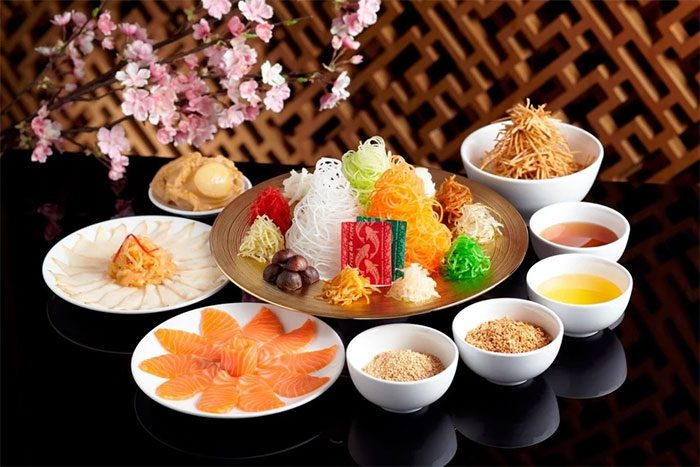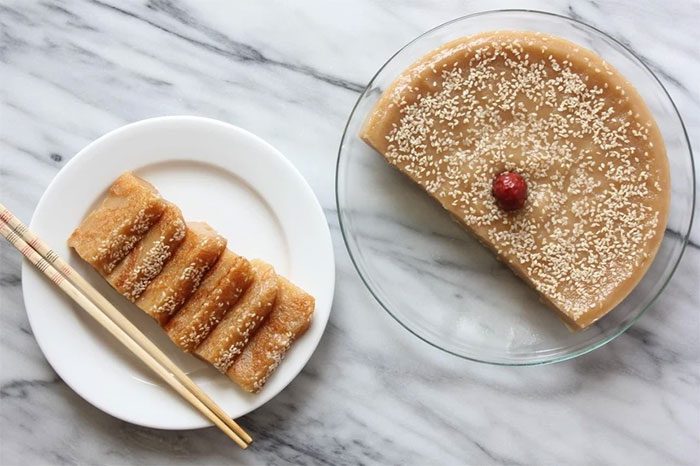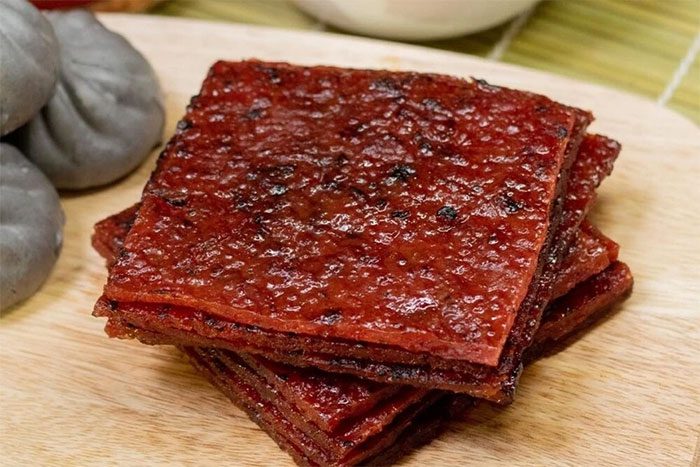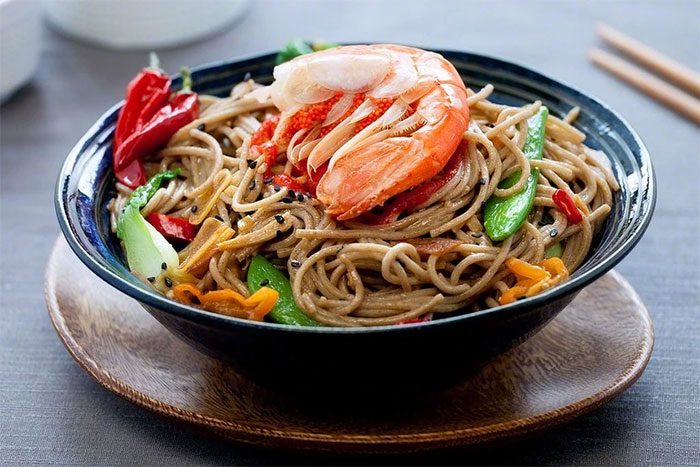Yu Sheng fish salad, Nian Gao cake, Bak Kwa dried meat, and longevity noodles are some of the famous dishes when it comes to New Year cuisine in Singapore.
Some dishes carry special meanings and typically only appear during the New Year in Singapore. Additionally, there are common dishes that people believe can bring luck and peace when consumed during the New Year, according to ASEAN Records.
Yu Sheng Fish Salad
Singaporeans have the custom of eating Yu Sheng during the New Year, believing it will bring them luck and prosperity. This salad is made from 27 ingredients, including salmon, vegetables, various sauces, and spices.

The traditional Yu Sheng fish salad of Singapore symbolizes wishes for a prosperous year. (Image: ASEAN Records).
Each ingredient in this dish carries its own meaning. Salmon symbolizes abundance, while pomelo and carrots represent luck, pepper attracts wealth, olive oil ensures smooth work, peanuts signify abundance and wealth, and longevity. The fine strands of fried potato also imply a floor covered with gold and silver.
The way to enjoy this dish is quite special; everyone gathers around the dining table, tosses the salad together, lifts it high, and wishes each other good luck before eating.
Due to its elaborate preparation and special symbolism, Yu Sheng almost exclusively appears on formal occasions like the New Year. This makes the dish more meaningful and a must-have specialty in Singaporean households during the Lunar New Year.
Nian Gao Cake

Nian Gao cake. (Image: ASEAN Records).
Nian Gao is made from high-sticky glutinous rice flour, a little sugar, and ginger, creating a chewy texture mixed with a mild, delicate sweetness, often shaped into symbols of luck such as fish or ingots.
Nian Gao is available year-round, but sales typically spike during the New Year because Singaporeans believe that eating this cake at the start of the year will bring sweetness and strengthen friendships.
The good fortune comes from the preparation and the name: the cake is a combination of glutinous rice flour and other ingredients, and the pronunciation of its name is similar to the term “development.”
Bak Kwa Dried Meat
Bak Kwa dried meat is a popular snack in Singapore and is also considered traditional cuisine during the New Year.

Bak Kwa dried meat in Singapore. (Image: Peng Guan).
Originating from Chinese cuisine, over time, the flavor of Bak Kwa has been adapted to suit the tastes of Singaporeans, with additional ingredients such as dried pork, beef, and chicken.
Instead of being traditionally grilled over charcoal, Bak Kwa is now dried using machines, ensuring nutritional value, food safety, and delicious flavor. This snack is red in color and is wrapped in similarly colored paper to symbolize luck.
At any time of year, this dish attracts many visitors who enjoy it and buy it as gifts.
Longevity Noodles (Chang Shou Mian)

Longevity noodles in Singapore. (Image: ASEAN Records).
Originating from China, longevity noodles are also popular in Singapore during the New Year, with the hope that those who eat them will live long and remain healthy. Often served with mustard, this dish is specially prepared to keep the noodles chewy and long, symbolizing longevity as its name suggests.
Longevity noodles appearing at family meals also express filial piety and blessings from children to grandparents and parents.


















































